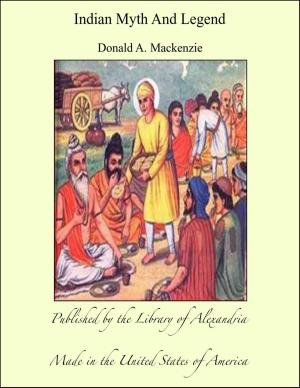With the Allies to Pekin: A Tale of the Relief of the Legations
Nonfiction, Religion & Spirituality, New Age, History, Fiction & Literature| Author: | George Alfred Henty | ISBN: | 9781465603173 |
| Publisher: | Library of Alexandria | Publication: | March 8, 2015 |
| Imprint: | Language: | English |
| Author: | George Alfred Henty |
| ISBN: | 9781465603173 |
| Publisher: | Library of Alexandria |
| Publication: | March 8, 2015 |
| Imprint: | |
| Language: | English |
The campaign which ended with the relief of the Pekin Legations is unique in its way, carried on as it was by an army made up of almost all the nationalities of Europe. The quarrel originated in the rising of a mob of ruffians who were known by us under the name of Boxers. The movement spread like wildfire, and soon developed into the wholesale massacre of the missionaries of Northern China. The Empress, seeing the formidable nature of the rising, and hoping to gain by it the expulsion of all foreigners from her dominions, allied herself with the Boxers, besieged the various Legations, and attacked Tientsin, which stands upon the river by which the trade with Pekin is carried on. Admiral Seymour, with a force of little over a thousand men, marched to the relief of the Legations. The railway, however, was cut both before and behind him, and after severe fighting he retired upon a Chinese fortress a few miles from Tientsin, where he maintained himself until he was relieved by another force which had arrived by sea and had destroyed the forts at the mouth of the river. Tientsin itself was captured by the allies after one dayʼs hard fighting, and the army then advanced to the relief of the Legations. The opposition they met with was trifling in comparison with that which they had encountered at Tientsin, and they arrived at Pekin not a moment too soon. It was found that the Legations had been very hard pressed, some of them having been destroyed by fire. But the garrison had maintained a heroic defence, aided by the native Christians who had escaped the massacre and taken refuge with them, and who had done excellent work in the building and constant repair of the defences, sometimes under the heavy fire of the enemy. The Empress had fled, but negotiations were opened with her and terms of peace were ultimately agreed to.
The campaign which ended with the relief of the Pekin Legations is unique in its way, carried on as it was by an army made up of almost all the nationalities of Europe. The quarrel originated in the rising of a mob of ruffians who were known by us under the name of Boxers. The movement spread like wildfire, and soon developed into the wholesale massacre of the missionaries of Northern China. The Empress, seeing the formidable nature of the rising, and hoping to gain by it the expulsion of all foreigners from her dominions, allied herself with the Boxers, besieged the various Legations, and attacked Tientsin, which stands upon the river by which the trade with Pekin is carried on. Admiral Seymour, with a force of little over a thousand men, marched to the relief of the Legations. The railway, however, was cut both before and behind him, and after severe fighting he retired upon a Chinese fortress a few miles from Tientsin, where he maintained himself until he was relieved by another force which had arrived by sea and had destroyed the forts at the mouth of the river. Tientsin itself was captured by the allies after one dayʼs hard fighting, and the army then advanced to the relief of the Legations. The opposition they met with was trifling in comparison with that which they had encountered at Tientsin, and they arrived at Pekin not a moment too soon. It was found that the Legations had been very hard pressed, some of them having been destroyed by fire. But the garrison had maintained a heroic defence, aided by the native Christians who had escaped the massacre and taken refuge with them, and who had done excellent work in the building and constant repair of the defences, sometimes under the heavy fire of the enemy. The Empress had fled, but negotiations were opened with her and terms of peace were ultimately agreed to.















